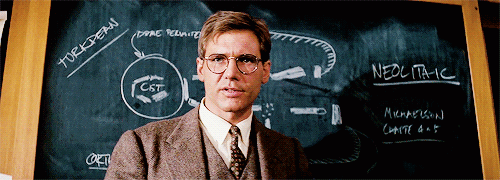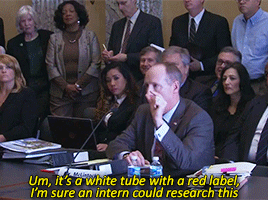I planned to study biology my entire life because I wanted to know everything about DNA. When I discovered that my passion for DNA stemmed from wanting to understand why some people get Huntington’s disease and others don’t, I realized that neuroscience might be the field for me instead. Although I stuck with biology, every college students faces the tough situation of choosing between two or more majors.
Try a bunch of different classes

The entire point of your freshman year is to discover what you like. Whether that’s economics, the law, international studies or drama, you should explore it when you get to college. Many people don’t come to college knowing what they want to major in, so take your first year (and part of your second if you need it) to try classes in multiple areas that interest you. If you like to talk about politics, try a political science course. If you find yourself excited whenever someone mentions Hamilton, try a musical theater or history course. Pay attention to what sends butterflies fluttering in your stomach and follow it. Classes can’t tell you everything you need to know, but they can give you initial experience with a major.
Ask someone who knows more

Once you’ve taken a class, try going to that professor or another in the same department and ask their opinion. They want to help you find the major that you love even if it isn’t within their department. When I couldn’t decide if I wanted to do biology or neuroscience, I went to the professor who happened to be the director of both departments. Although he told me that he wanted to build up the neuroscience program, he knew that biology was the best department for my future aspirations. “You will find engaged faculty members, and faculty members who really want to help students out and how to point students in certain directions. We like helping students figure out a pathway to whatever it is that they want,” said American University Chemistry Professor Matthew Hartings.
Prepare your list of questions before the meeting. “Talking with professors about the why of your reasons, not the what is a much more productive conversation for students to have with faculty,” said American University Communication Professor Benjamin Stokes. You could ask what the required classes look like, the places that graduates in that major work in, the different types of jobs you could have or the study abroad program. What major will set you up for the career you want? Also ask what type of out of classroom experience you can get.
Career advisors can help, too. “A career advisor can help the student think through the decision and make recommendations about the steps they can take to make a good decision,” said American University Career Advisor Julia Beyer. They can help you figure out who to talk to and how to get more information.
Get those internships

Part of the point of getting a college degree is to eventually work in that field, so you should decide whether you actually like what you’re studying before choosing to major in it. “It’s tough just taking classes. One of the things we do in university is prepare you to think, but a lot of the classes don’t necessarily let you in on what it’s like to work as a professional whatever,” said Hartings.
So how do you really know if you like something? That’s where internships come into play. “In university we teach you to think in multiple different ways, but you get some really invaluable training and experience by doing internships. I would really suggest for people to look for those opportunities as well,” said Hartings. The worst that can happen is that you find out you hate working in politics before you’ve spent four years getting a degree in political science.
Try an extracurricular

While it’s easier to get an internship in a field by majoring in it, it’s not impossible. If you’re having difficulty getting an internship in that field, try joining an activity on campus that will give you experience with a specific field. If you think you might want to major in journalism, join the school paper. If you want to teach math, sign up to be a math tutor or try tutoring a friend.
“Like with any aspect of their education [students] need to be active and not passive with it. If they’re interested in some particular aspect of their education, they need to pursue opportunities in it and search for the community that they can interact with to see how they would fit into that,” said American University Statistics Professor Betty Malloy. Although a campus extracurricular is not the same as real world experience, it can give you a small taste of what it’s like, AKA the whole point of college.
Look Into Your Future

“At a certain level, you want to feel good about the process of making the decision, even more than whatever you pick. You have to try to come to terms with the fact that there are going to be more great things you won’t do than even good things you will do,” said Stokes. If you see yourself living in San Francisco in a cute apartment, maybe major in computer science or something that could lead to a job in tech. If you want to live in another country, try learning the native language or majoring in international studies. While you shouldn’t base your entire future on one place or one lifestyle, you still need to take into account what you want for your future.
Channel your Inner Robert Frost

You could spend the rest of your college career trying to decide between majors and end up a super senior, but you need to decide if you plan to graduate. So get some deep thinking in and really get to the root of your ambition. “[Students] have to figure out what is most important to them and if the culture of where they’re heading matches that. Different disciplines and fields require different things of you in terms of what you may have to sacrifice to succeed in those areas,” said Malloy.
While you’re figuring out your big plan for life, remember to enjoy the ride. “This time in a young student’s life is exciting because there’s lots of different things that you can do, and lots of directions that you can go in. It’s a nice freedom to have, and I understand that it’s also very intimidating and scary and there’s lots of anxiety around that, but it’s a start of a journey,” said Hartings. Once you choose which road to take, try not to look back, only move forward and keep bringing yourself closer to your major decision.



















